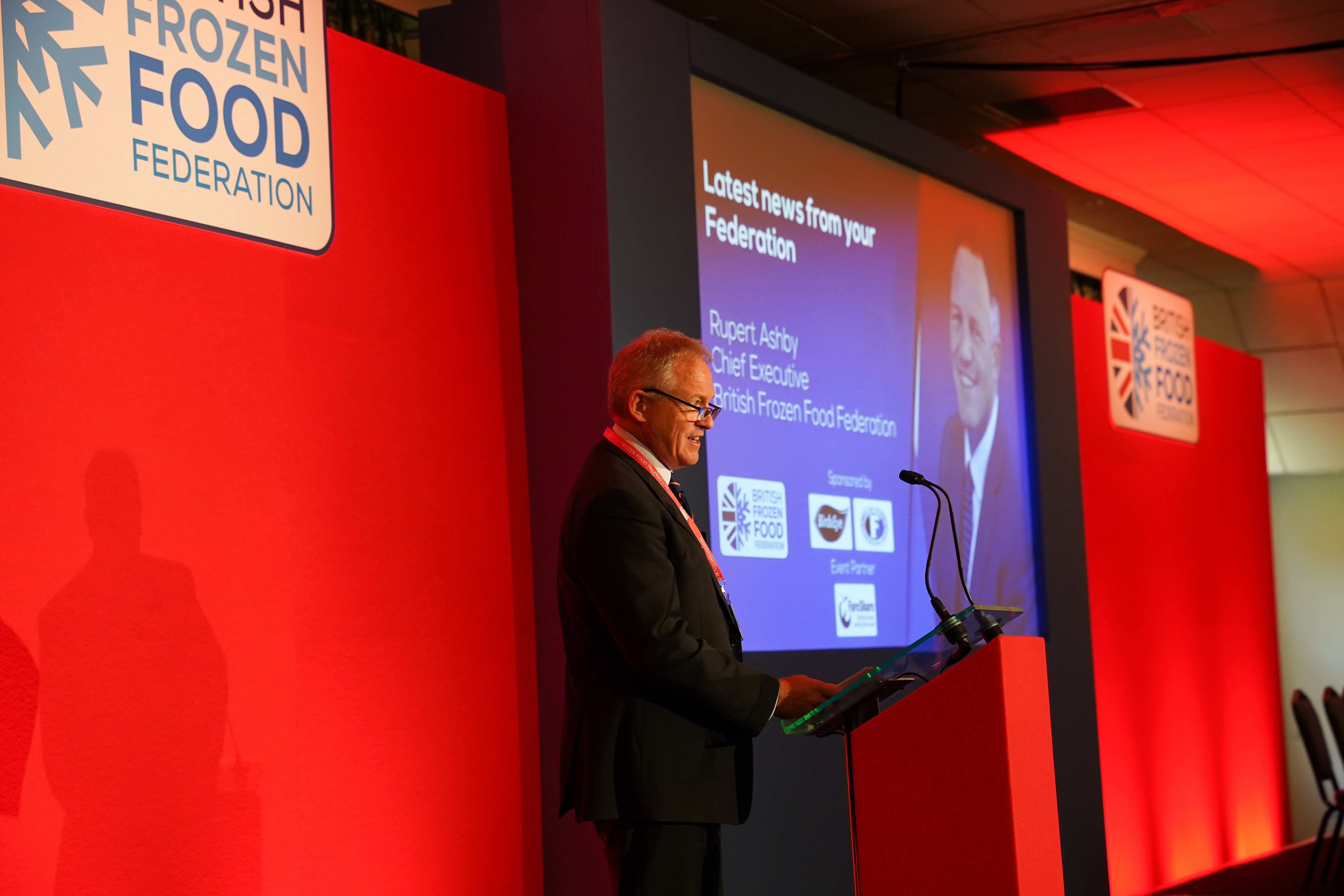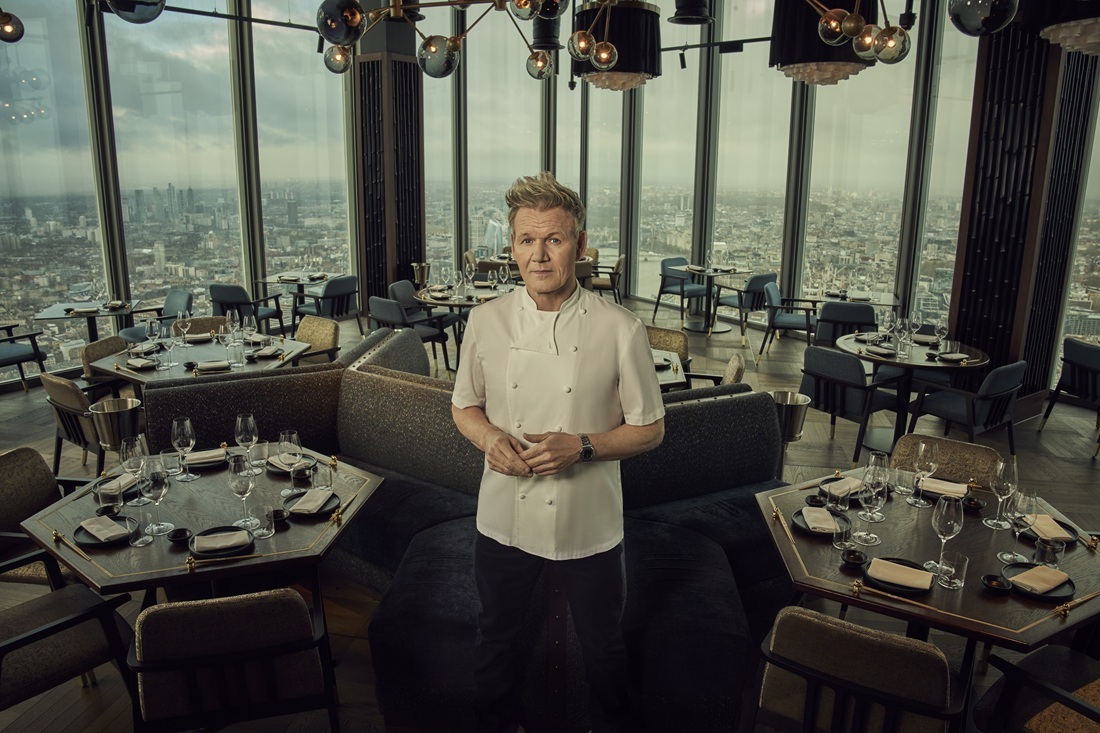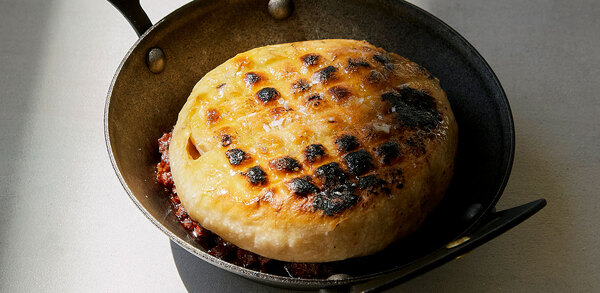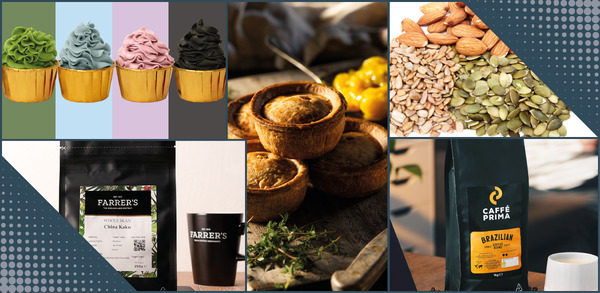Challenges and opportunities highlighted at frozen food conference
Challenges and opportunities were the key themes highlighted at the recent British Frozen Food Federation’s Business Conference.
The event, that covers foodservice and retail trends, made its return following the recent pandemic last month at Stratford Manor Hotel, Stratford-upon-Avon.
Speakers including Simon Stenning of Future Foodservice, Andrew Selley, chief executive of Bidfood and Blonnie Whist, insight director of Lumina Intelligence, highlighted the very real challenges faced by caterers in the months ahead, as well as the opportunities for adaptation and growth.
Whilst there was widespread acknowledgment that the cost of living crisis will have a major impact on caterers, there was optimism that frozen food could play a vital role in helping operators weather the storm.
In his opening remarks, BFFF CEO Rupert Ashby said: “The conference focus is on ‘The Future of Frozen’, a discussion that could not come at a better time.
“On one side of the coin, the industry is facing unprecedented challenges including disruption of supply chains, rising fuel costs, new legislation, and labour shortages. However, on the flip side we see great opportunities with recent increased use of frozen food by consumers, the development of quality products at reasonable prices that help with the cost of living crisis and frozen food as a serious solution to the ever increasing amounts of food waste seen in this country.”
Industry analyst Simon Stenning of Future Foodservice, said: “We are going to see the impact of the cost-of-living crisis and some closures of loss-making operations.”
Stenning added that: “Covid changed the operating parameters for many businesses, speeding up the closures of casual dining restaurant sites, forcing offers to flex and adapt to changing consumption patterns, and bringing forward the adoption of automation, digitalisation and a growth of Drive-Thru’s. This has been given an additional boost by pressures on the labour market.”
He pointed to the development and rapid implementation of new virtual dining brands, including those created by social media influencers such as The Sidemen or DJ Khaled. Several of these brands have achieved rapid expansion by launching in new spaces such as hotels and utilising delivery services.
He added: “There will be a growing polarisation between the value-driven social refuelling, from the likes of Arcade Food Hall and other market halls, plus concepts such as Marugame Udon. At the other end of the scale we are seeing premiumised, experiential dining, where consumers will pay more for a better experience, created either by superb, expert service, by theatrical elements, or with the environment and ambience.”
His long-term view for catering is positive with population growth, greater urbanisation and increased tourism all set to benefit the industry. “What we eat in the Next Era of Foodservice can be described as needing to be Worthy, but still Wow, Worldly, Woke, and a little bit Wacky,” he said.
From the supply side, Bidcorp chief executive Selley told delegates energy inflation was “tailing off from the gas side – although oil is predicted to increase from the back end of 2023,” but he warned other commodities like potatoes are only just starting their inflationary journey. He highlighted that the cost of some frozen items was on the rise with 35% tariffs on all fish imported under Russian origin, for example.
He said: “People are switching to other proteins as prices go up,” but argued that frozen has a key role to play in the fight against food waste. “One in seven people across the world are going hungry but, in developed countries, we throw away a third of our food,” he said.
“By 2050 we will need 56% more food to feed the world’s growing population and yet climate change has lowered agricultural yields.
“We are encouraging clients to be more agile and flexible and frozen food plays a large part in that. Longer shelf-life gives protection against availability issues, enabling chefs to adapt menus. There is minimal waste and higher yields.”
Blonnie Whist of Lumina Intelligence highlighted that consumers are becoming increasingly price sensitive but that caterers are responding with NPD and customisation to mask price increases.
She pointed to the menu adaptations many caterers are making to control costs whilst continuing to provide good quality meal options, such as ‘customisable’ salads, pizzas and lunchtime meal deals. And she highlighted the role frozen food can play in providing quick to prepare ingredients and controlling costs by the reduction of food waste.
She also highlighted growth opportunities as the market is becoming more esoteric. Product trends including high end sandwiches, wild meats, artisan bakery and charcuterie boards are good areas of innovation for outlets to explore and offer opportunities for greater margins.
Ashby concluded that despite the significant challenges presented by the cost of living crisis, there remain significant opportunities for caterers and frozen food has a role to play in reducing costs and providing quality dishes and ingredients that can help outlets survive and thrive.




















